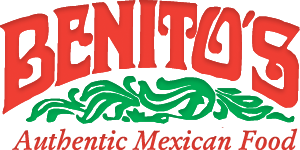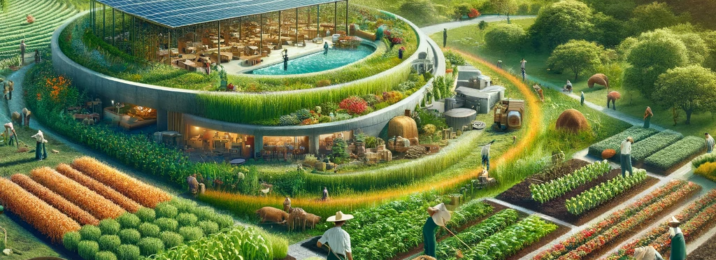Sustainable Farming and Its Impact on Mexican Cooking
Sustainable farming practices are revolutionizing Mexican cooking, preserving traditional flavors while fostering environmental stewardship and economic resilience. This transformation is not just about food production; it’s a cultural renaissance that honors Mexico’s rich culinary heritage and addresses contemporary health and environmental challenges.
The Intersection of Agriculture and Gastronomy
The Backbone of Mexican Cuisine
Mexican cooking is deeply rooted in the use of fresh, local ingredients that are the products of the country’s diverse ecosystems. The shift towards sustainable agriculture is ensuring the continuity of these ingredients, which are essential for authentic Mexican dishes.
Sustainable Practices Enhancing Flavor
Farmers who adopt sustainable methods often report that their produce has better flavor. This is a boon for Mexican cuisine, which relies on the quality and specific taste profiles of its ingredients.
Environmental Impacts
Biodiversity Conservation
Sustainable farming in Mexico helps preserve biodiversity, which is crucial for maintaining the variety of ingredients used in traditional recipes.
Soil and Water Preservation
By avoiding harmful chemicals and implementing crop rotation, Mexican farmers are protecting their soil and water resources, ensuring long-term productivity and food security.
Climate Change Mitigation
Sustainable agriculture in Mexico is contributing to climate change mitigation by reducing greenhouse gas emissions and increasing carbon sequestration through practices like agroforestry.
Economic Dimensions
Cost Reduction and Profitability
Sustainable farming can lead to a decrease in production costs and an increase in profitability for farmers, which is vital for the economic sustainability of rural communities.
Market Opportunities
There is a growing market for sustainably produced food, both domestically and internationally. Mexican farmers can capitalize on this trend to improve their livelihoods.
Government Policies and Support
The Mexican government’s support for sustainable agriculture, including subsidies and technical assistance, is crucial for the transition to more sustainable practices.
Social Implications
Health and Nutrition
Sustainable farming practices are linked to healthier diets in Mexico, as they promote the consumption of a diverse range of nutritious foods.
Cultural Preservation
Sustainable agriculture supports the preservation of traditional farming techniques and indigenous knowledge, which are integral to Mexican cooking.
Rural Development
Sustainable farming can drive rural development by creating jobs and supporting local economies, which in turn helps to preserve rural culinary traditions.
Case Studies and Trends
Agroecological Transition in Mexico
Organizations like ANEC are leading the way in the agroecological transition, demonstrating that sustainable practices can result in higher yields and healthier soils.
Chefs as Change-Makers
Mexican chefs are increasingly turning to sustainably sourced ingredients, promoting traditional foods and contributing to the sustainability movement.
Organic Movement Growth
Mexico ranks third globally for organic production, showcasing the country’s commitment to sustainable farming and its positive impact on cooking.
Challenges and Solutions
Balancing Tradition and Modernity
While sustainable farming is beneficial, it must be balanced with the need to feed a growing population and compete in modern markets.
Access to Resources
Small-scale farmers often struggle with access to resources needed for sustainable farming, highlighting the need for better support systems.
Education and Awareness
Increasing awareness and education about sustainable practices among farmers and consumers is essential for the movement’s success.
The Future of Mexican Cooking
Dietary Shifts
As Mexico moves towards healthier diets, sustainable farming will play a key role in providing the necessary ingredients for these dietary changes.
Land-Use Modeling
Integrated land-use modeling suggests that Mexico can adopt sustainable practices that provide adequate nutrition while reducing environmental impacts.
Innovation in the Kitchen
The reconnection to indigenous foodways and the innovation by chefs are creating a new era of Mexican cooking that is both sustainable and delicious.
FAQs on Sustainable Farming and Mexican Cooking
What is sustainable farming?
Sustainable farming is an agricultural practice that aims to meet current food needs without compromising the ability of future generations to meet their own needs. It focuses on environmental health, economic profitability, and social and economic equity.
How does sustainable farming affect Mexican cooking?
Sustainable farming ensures the availability of fresh, local, and diverse ingredients that are fundamental to Mexican cuisine. It also supports the preservation of traditional farming methods and recipes, contributing to the cultural richness of Mexican cooking.
Can sustainable farming improve the nutritional value of food?
Yes, sustainable farming practices can lead to more nutrient-dense produce due to healthier soil and the reduced use of chemicals. This, in turn, can enhance the nutritional value of the food used in Mexican cooking.
How does sustainable farming contribute to environmental conservation?
Sustainable farming practices, such as crop rotation, organic farming, and water conservation, help maintain ecosystems, preserve biodiversity, and reduce pollution and greenhouse gas emissions.
What role do chefs play in promoting sustainable farming in Mexico?
Chefs in Mexico are increasingly sourcing ingredients from sustainable farms, highlighting traditional dishes, and educating the public about the importance of sustainability in agriculture. They act as change-makers, bridging the gap between farmers and consumers.






